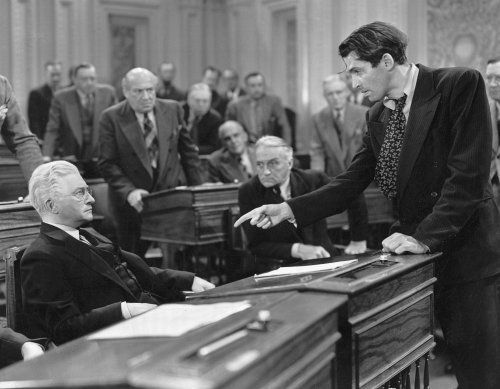
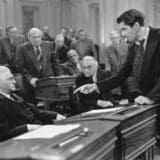
1. “Buy American” Law. AB 1543, introduced by Luis A. Alejo (D-Salinas), would have created a billion-dollar market for goods manufactured in California by requiring that, starting in 2014, at least 70 percent of state and local agency procurement be spent on manufactured goods made in the United States. Failed 04/27/12 deadline to move to fiscal committee.
2. Minimum Wage COLA Law. AB 10, introduced by Luis A. Alejo (D-Watsonville), would have automatically indexed state minimum wage increases to inflation. Held in Assembly Appropriations 5/27/11; failed deadline. (Subsequently, AB 10, raising minimum wage to $10 by 2016, was signed by Governor Jerry Brown earlier this year.)
3. Wage Theft Lien Law. AB 2517, or the California Wage Lien Bill, introduced by Mike Eng (D-Monterey Park), would have expanded the Mechanics Lien Law to allow workers from all industries to file a lien without an attorney for unpaid labor against the property where the work was done.
» Read more about: Capitol Punishment: Nine Good Bills the Cal Chamber Wanted Killed »


Driving past Echo Park the other day I saw a cat convulsing in the road. It had plainly been hit by a car and was, hopefully, near death. I considered backing up and driving over the poor thing to end its misery, but I didn’t have the strength.
Francis Underwood, played by Kevin Spacey, finds himself in a similar situation in the opening scene of the Netflix series, House of Cards. He strangles a wounded creature (a dog) as he tells us there are two kinds of pain—that which makes you stronger and that which has no purpose and is thus just suffering.
Read Mark Fainaru-Wada and Steve Fainaru’s League of Denial and I promise you’ll be convinced there’s a third, perhaps more complicated category—suffering whose purpose is collective pleasure, incriminating participant and observer simultaneously.
The risks of repeated blows to the head are obvious and have been known for some time.


While growing up an American Catholic, I learned to tune out the Vatican, which had the air of Old World irrelevancy. The pope, I thought, was just the Catholic Church’s version of Queen Elizabeth, some doddering old monarch with no real power. The uncharismatic Pope Paul VI was a case in point, a kind of Millard Fillmore of the papacy. But instead of some dude with a bad 19th century haircut embroiled in states’ rights debates, this was an old Italian guy in a white dress. Same difference. But what did it have to do with my world?
Well, plenty as it turned out, for my boyhood coincided with the implementation of Pope John XXIII’s Vatican II reforms, which did in fact alter my world—in important ways. For a 9-year-old those important changes included permission to wear sneakers and T-shirts into church, the folk mass, no Latin classes — and an interesting lesson in architecture as the new circular churches that began to appear were more like theater in the round vs.
» Read more about: Pope Francis: Is God Actually in the House? »
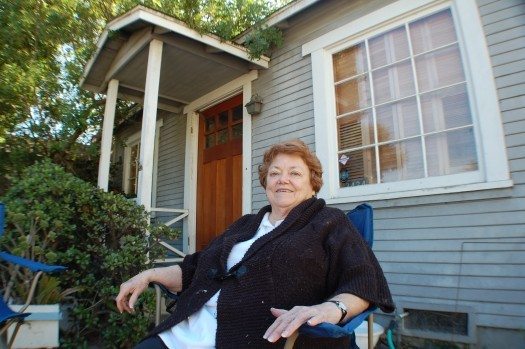
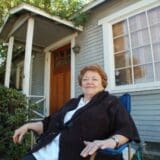
It’s official: America has entered a retirement crisis. Or, as Forbes understatedly put it, “the greatest retirement crisis in the history of the world.”
Frying Pan News recently spoke with some former state, county and municipal workers for a picture of how their retirements have been living up to their expectations.
Norma Anders, Long Beach
Retired career librarian Norma Anders’ eyes light up when she speaks of her 30 years in the City of Los Angeles’ public library system. “We make a big difference,” she declares proudly. “We’re one of the forces that’s giving our country an educated workforce, an informed citizenry. [It’s how] we’re going to be able to keep our [nation] growing and growing.”
Anders is having her morning tea in the well-manicured front yard of the modest clapboard house she shares with her retired husband, David, and her son Lee, who has moved back home while he finishes an accounting degree at Long Beach State.
» Read more about: Pension Shock: Interviews With Three Retired Public Employees »


In 2011, the University of California, Berkeley Center for Labor Research and Education put out a study that should have sparked mass rallies up and down the Golden State. The report found that nearly half of California workers will retire in or near poverty. In other words, a state once synonymous with the American Dream of economic opportunity and security is on a path to become a purgatory for millions of seniors.
It’s hard to square this alarming fact with the revelation last month that a group of mostly ultra-conservative electeds and activists will try to place a statewide measure on the 2014 ballot that would slash the pensions of government workers. The group, headed by San Jose Mayor Chuck Reed, includes Texas billionaire John Arnold, who has made “pension reform” a personal crusade.
The initiative would not only cut the retirement benefits of future public sector workers,
» Read more about: What State Pension Slashers Really Want »
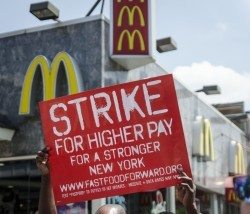
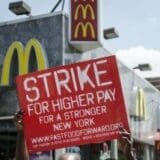
Following on the heels of last week’s Black Friday protests at Walmart stores, American fast-food workers plan one-day strikes in 100 cities Thursday. The figure represents a doubling of last year’s actions.
In addition, according to the New York Times’ Steven Greenhouse, demonstrations are planned for another 100 cities. On Sunday Greenhouse wrote:
The movement, which includes the groups Fast Food Forward and Fight for 15, is part of a growing union-backed effort by low-paid workers — including many Walmart workers and workers for federal contractors — that seeks to focus attention on what the groups say are inadequate wages.
The fast-food effort is backed by the Service Employees International Union and is also demanding that restaurants allow workers to unionize without the threat of retaliation.
Much of the fast-food strikes’ focus will be on pushing state minimum wages to $15 per hour.
» Read more about: Workers to Super-Size Fast-Food Strikes Thursday »
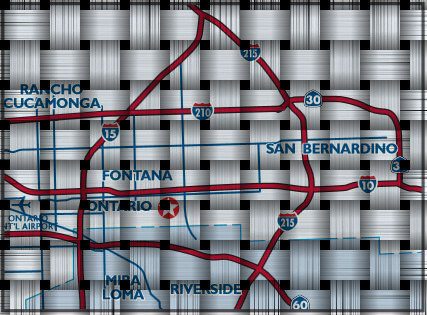

(This article was reported in partnership with the Investigative Fund of the Nation Institute. It first appeared on The Nation’s website and is republished with permission.)
The call from the temp agency comes in late October. I’ve passed the drug test, cleared the background check, sat down for a quick interview—“Can you lift fifty-pound boxes?”—and completed a worksheet of basic math problems. Now there’s a job. A warehouse just outside the city of Ontario, about forty miles east of Los Angeles, needs more bodies to meet the holiday crush.
They do work for Walmart, Best Buy, “all sorts of big companies,” says the female voice on the line. Orientation starts at 8:15 am; pay is $9 an hour. “Make sure you’re early.” Before hanging up she repeats the order. “Be early.”
On an overcast Tuesday, I pull into the parking lot,
» Read more about: Eyewitness: Working Inside an Inland Empire Warehouse »


Bursting out of ourselves,
rush of coat and elbow,
we rode over, over
Jimmy Damour, standing guard in the dawn —
the door yanked from its socket.
We rode as though on horseback
in the direction of our wanting.
They say you lay in a sleep of bronze
on the white linoleum,
while we shopped for TVs.
You a stone in the current of us.
Like water, indifferent, serpentine,
we carved the earth,
with our urgent business.
They say you shielded a pregnant woman
with your body,
that beneath the weight of us
she heard the grinding of her own teeth.
I’d like to say that because of you, Jimmy,
we make do with less.
It would suit my miserly heart
to cut, extract, leave out,


For a list of Black Friday actions planned nearest you, go to https://blackfridayprotests.org/
» Read more about: Walmart Braces for Black Friday Protests Today »


» Read more about: Happy Thanksgiving — Eat (Not Shop) Till You Drop! »